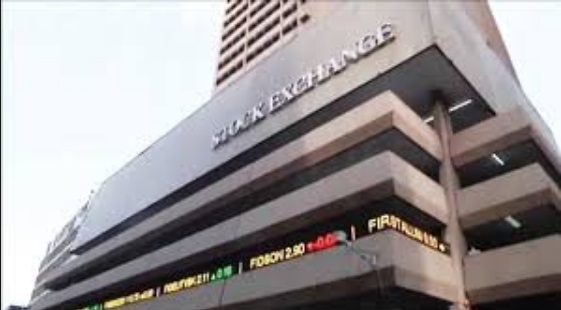Contrary to high expectations that the Nigerian equities market will sustain the 2017 positive performance in 2018, the market closed the immediate past year with a decline of N1.898 trillion, while the Nigerian Stock Exchange (NSE) All-Share Index (ASI) depreciated by 17.8 per cent.
This is just as the Debt Management Office (DMO) has revealed that Nigeria’s total public debt stock rose slightly in the third quarter of 2018 to $73.213 billion (N22.429 trillion) as at September 30, 2018.
The decline in the stock market was in contrast to the 42.3 per cent growth recorded in 2017 after three years of fall.
Based on the positive performance in 2017, operators and other stakeholders were upbeat that growth would be sustained.
While 2018 started on a positive note with the NSE ASI rallying 15.95 per cent in the first month, the bearish trend set in the following months, which persisted to the end of the year.
And the close trading for the year yesterday, the market capitalisation dipped from N13.619 trillion to N11.721 trillion, NSE ASI depreciated from 8,243.19 to 31,430.50.
According to analysts at CSL Stockbrokers Limited, the down trend in the stock market, which was initially triggered by rising yields in the United States(US) due to hike in interest rates by the Fed, was exacerbated by escalating trade war between the US and China, and investor fears surrounding a “contagion effect” on the back of the turmoil in emerging markets (Turkey and Argentina in particular).
“In addition, the political uncertainties in the domestic economy in the build-up to the 2019 elections amidst a sluggish growth in gross domestic product (GDP), which slowed from 2.1 per cent in Q4 2017 to 1.95 per cent in Q1 2018 and then to 1.5 per cent in Q2 2018, from the economic recession led foreign investors to flee the equities market in search of high-quality lower-risk assets in developed economies notably the US,” they said.
Reflecting on the slowdown in the participation of foreign investors in the local bourse, Nigerian Stock Exchange (NSE) data revealed that foreign transactions has declined by 49 per cent from N166.39 billion in January to N84.36 billion at the end of November.
“Noteworthy to mention is that, foreign transactions for the month of July stood at N36.15 billion, the lowest since the Investors and Exporters window was introduced by the Central Bank of Nigeria (CBN) in April 2017. The data further revealed that foreign outflows for the months of January till November has increased by 51 per cent from N402.2 billion in 2017 to N605.5 billion in 2018,” CSL said.
Looking ahead, the analysts said: “Although, we acknowledge that the broad sell off in the market has led to a significant moderation in the share prices of stocks providing opportunities for bargain hunting, we think that the argument for “Buying the dip” frequently advanced by money managers and traders is still too early to call for.
“With growing concerns about a weakening global economy, the US Fed providing guidance for two rate hikes in 2019 and more importantly, the elevated political risk in the domestic economy, we expect foreign investors to remain on the sidelines. Hence, we still expect a choppy theme to characterise the nation’s bourse over the short term.”
Speaking on the performance of the stock market recently, the Acting Director General of the Securities and Exchange Commission (SEC), Ms. Mary Uduk, had said a large percentage of these who do business in our market are foreign investors and as at the third quarter of 2018, the capital outflow stood at N513 billion as against N477.7 billion inflow.
“We can see that the impact of increase in interest rate in advanced countries not just US, has impact on capital outflow thereby leading to reduced performance in our markets. I want to say that the interest rate increase in advanced economies not just the US, does not affect only Nigeria but also affects other emerging and frontiers market in the world,” she said.
Meanwhile, the latest debt figure released by the DMO which comprised external and domestic debts of the federal government, the 36 states and the Federal Capital Territory (FCT), was 0.22 per cent higher than the $73.208 billion or N22.38 trillion it was as of June 2018.
External Debt declined by 2.02 per cent to $21.592 billion due largely to the redemption by Nigeria of a $500 million Eurobond which matured on July 12, 2018.
The Eurobond, which was issued for a tenor of five years in 2013, was the first Eurobond maturity for Nigeria and Nigeria’s ability to repay it seamlessly, boosted the country’s position as a good credit in the International Capital Market.
Nevertheless, debt service in the third quarter soared by 320 per cent compared to what the country spent on serving its external debts in the second quarter of the year.
Between July and September this year, the country had spent $849.972 million on servicing its external debts, while 82 per cent or $697.43 million had expended on servicing bilateral obligations.
This was a substantial increase compared to $202.373 million that was expended on external debt servicing, where 56.5 per cent or $114.37 million went into servicing bilateral obligations.











